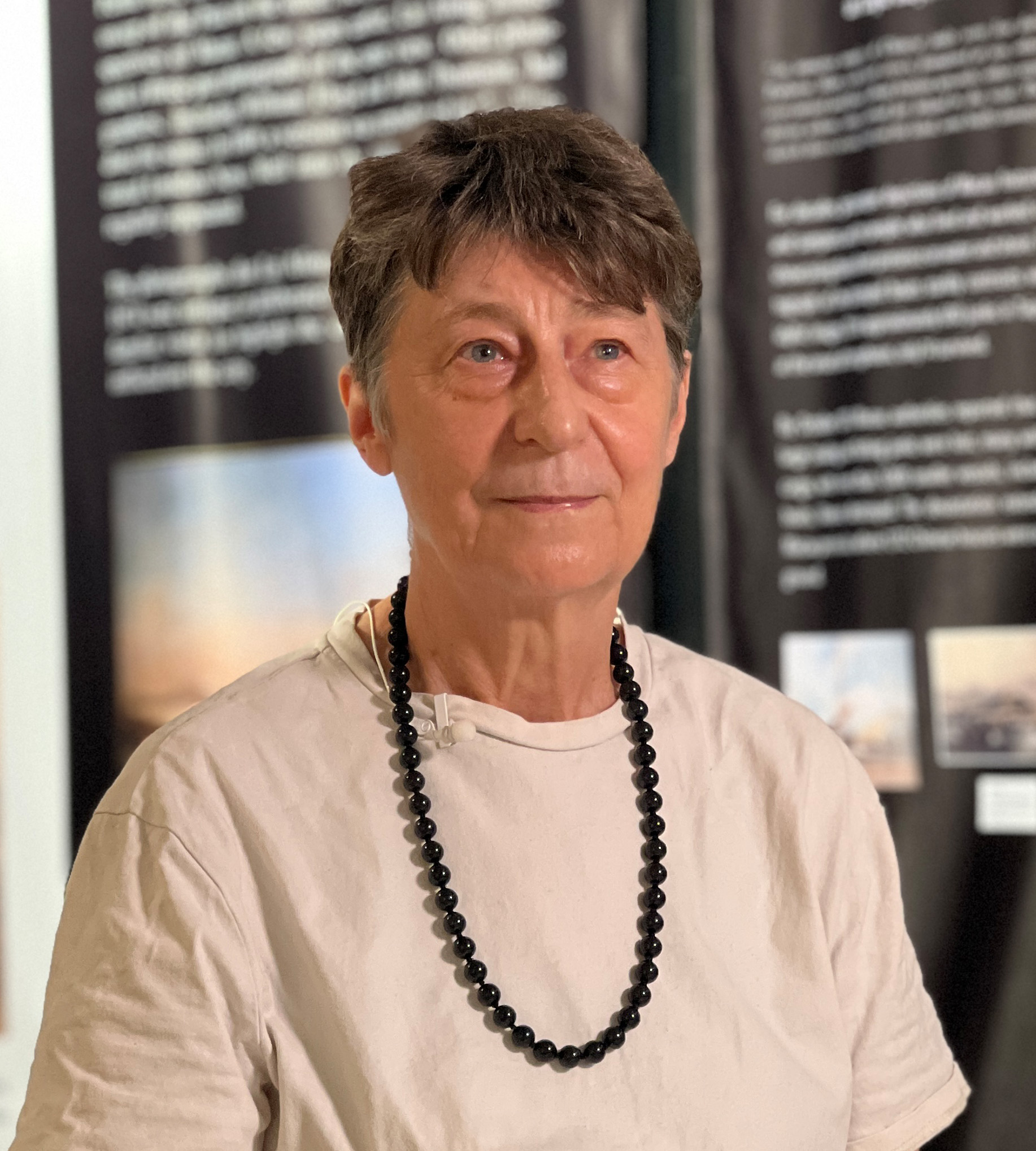
Priscilla Roberts
Head of the Department of History and Heritage
University of Saint Joseph,
Macao S.A.R, China
View Bio >
Resistance and Refugees: Macau and South China During the Anti-Japanese War
Abstract:
From 1937 to 1945, Macau faced some of the greatest challenges in its history. When Japan invaded China in 1937, Portugal remained officially neutral in this conflict, as it also did when war began in Europe in 1939. Macau could not, however, remain unaffected, as refugees began flooding into the city. The 1927 population of 157,175 rose to 245,194 by 1939, reaching 321,269 in 1940. After Japanese forces captured and occupied Hong Kong in December 1941, the population rose to almost 500,000, peaking at around 600,000 in late October 1944. Providing even basic shelter and subsistence for these extra mouths was a major undertaking, one in which Portuguese officials had to work closely with the local Chinese community. With the surrounding territory under Japanese rule, and Macau itself vulnerable to Japanese takeover, Macau’s governor also had to steer a tortuous course when dealing with the Japanese authorities, who established a consulate in the territory in October 1940 that included a substantial military mission and secret police contingent. Confidential understandings on Macau reached between Portugal and Japan effectively compromised Macau’s neutrality, but allowed the city to maintain a level of independence. Throughout the war, a British consulate remained open in Macau. The territory also functioned as a base for espionage and covert anti-Japanese operations launched by Chinese, British, and American guerrilla groups who were active in south China. To those living in occupied Hong Kong, Macau’s Guia lighthouse, still shining from the one enclave for thousands of miles that had escaped full-scale war, became a beacon of hope for the future.
Keywords: Macau in World War II; refugees; neutrality; Portugal; Japan
Institutional Speakers

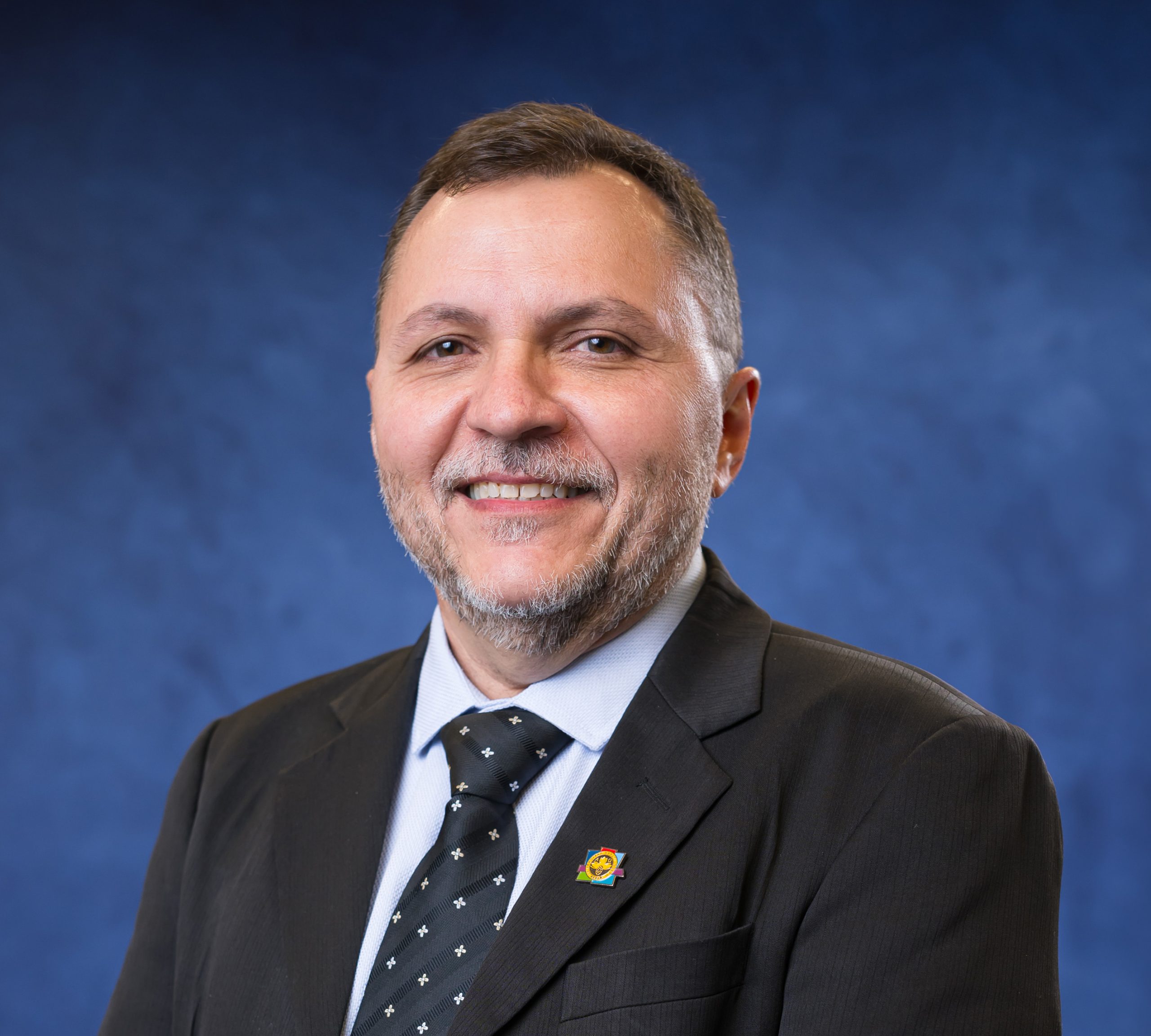
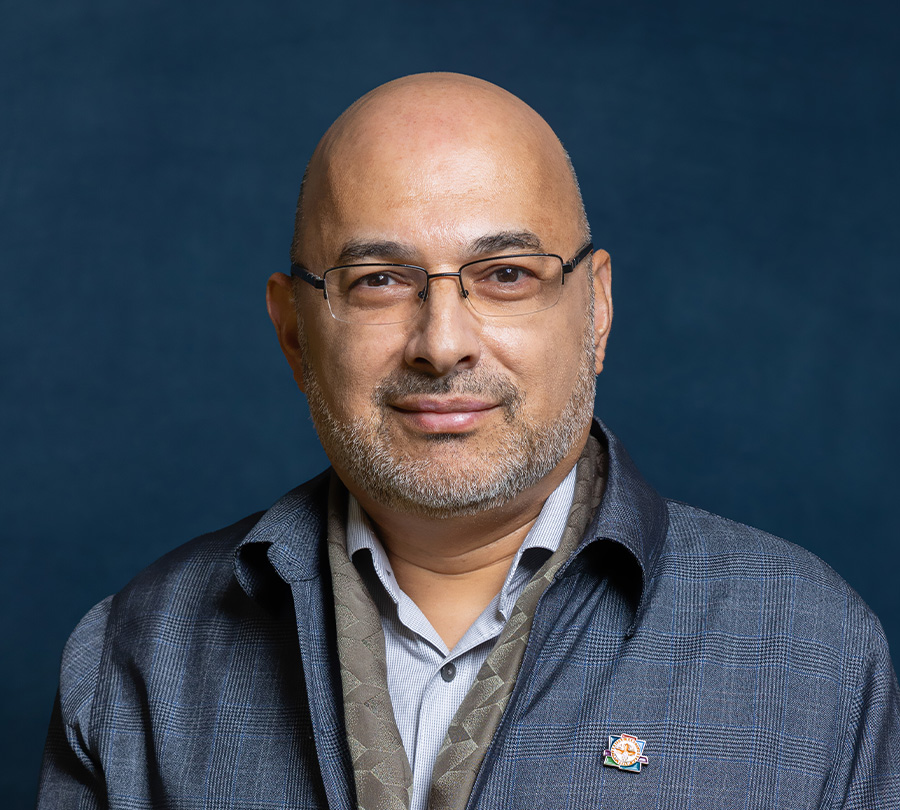
Adérito Fernandes-Marcos
Dean of the Doctoral School
University of Saint Joseph
Macao S.A.R, China
View Bio >
International Speakers
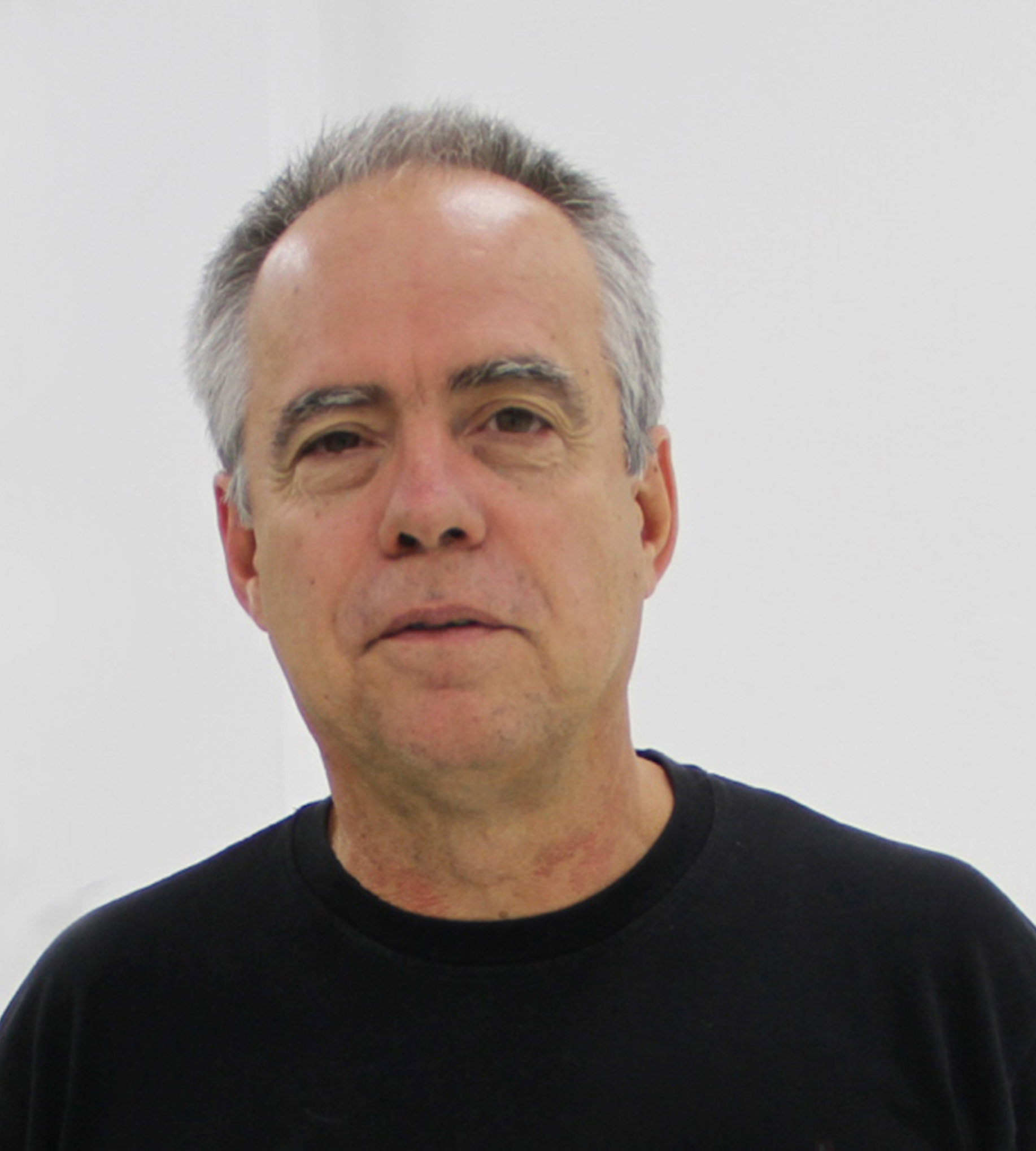
Gilbertto Prado
Full Professor
Postgraduate Programs of Visual Arts at the School of Communication and Arts
University of São Paulo, Brazil
Reconstruction and Updating of Digital Artworks
This lecture aims to briefly present the process of reconstruction and updating of selected digital artworks by Gilbertto Prado in collaboration with the Digital Poetics Group (Grupo Poéticas Digitais). These works include interactive installations, some incorporating natural vegetation and virtual multi-user environments (VR). Some of these works were created in the early 2000s, and many others, despite being more recent, can no longer be exhibited due to the obsolescence of programs, equipment, and devices. Many of these works are primarily experimental processes, involving both poetic and material constructions.
Key works discussed include: Desertesejo (2000), Amoreiras (Mulberry Trees, 2010), and Meetings (2012), which have been presented at exhibitions such as EmMeio#14, Museu Nacional da República, Brasília (2022); Arte Cibernética | Obras da Coleção Itaú Cultural, MAAT, Lisboa, Portugal (2022); 1ª Bienal das Amazônias, Belém (2023); and Portals, Walkways and Pomanders, Contemporary Art Museum of São Paulo, Brazil (MAC-USP, 2025), among others. This technological updating process was carried out with the support of Rumos Itaú Cultural.
Keywords: Digital Poetics, Art and Technology, Interactive Installation, Digital Art, Update
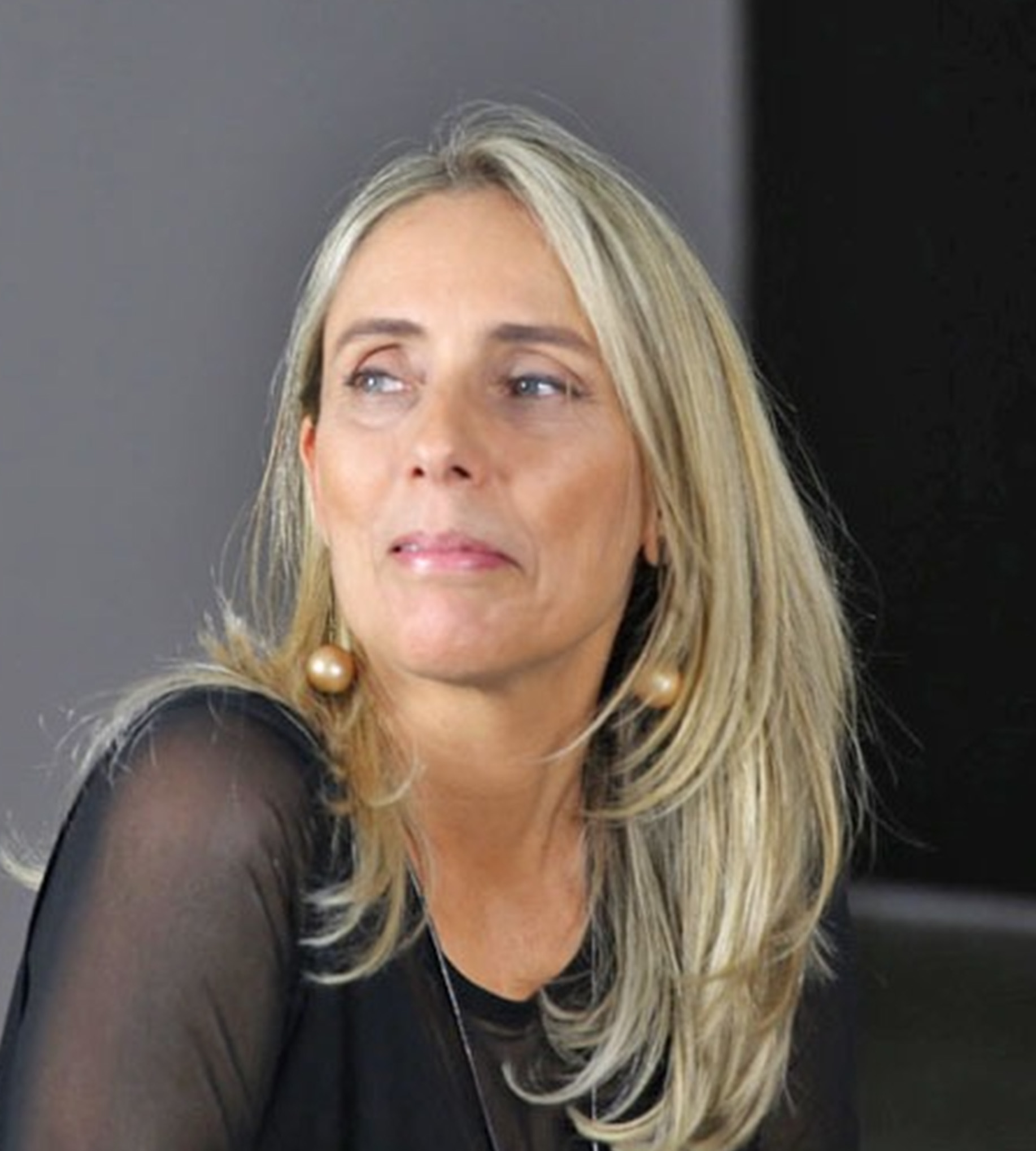
Priscila Arantes
Professor in the Postgraduate Program (PPG) in Design
Anhembi Morumbi University, Brazil
View Bio >
Media Art in Brazil: From the Dictatorship to the Contemporary Era
Abstract:
This lecture proposes an investigation into the paths of media art in Brazil, from the experimental and conceptual practices developed during the civil-military dictatorship to contemporary productions that incorporate digital technologies and artificial intelligence. The focus is on artistic production as a form of critical experimentation, activism, and network creation — understood both as technical infrastructures and political devices.
During the dictatorship, Brazilian artists sought ways to circumvent censorship and repression mechanisms through collective practices, interventions in alternative circuits, and experiments with unconventional media. In this context, the idea of the “network” emerges not only as an aesthetic solution but also as a strategy of resistance and political articulation. These practices laid the groundwork for an art engaged with technological and social transformations, which today gains new layers using AI and other digital media.
The lecture is grounded in the analysis of three recent exhibitions as case studies: “Venenosas, nocivas e suspeitas” by Giselle Beiguelman, which uses artificial intelligence to address environmental issues from a critical and feminist perspective; “Solastalgia” by Lucas Bambozzi, which explores the ecological and subjective impacts of mining in Minas Gerais through sensory and interactive technologies; and “Portals, Walkways and Pomanders”, a solo exhibition by Gilbertto Prado, curated by myself and Ana Magalhaes, which addresses environmental issues through networked experiences and collaborative installations. These works point to an expanded form of media art that challenges the boundaries between body, territory, nature, and technology.
Keywords: AI, Media art, Digital Culture, Resistance, Curatorship
Postdoc Fellows
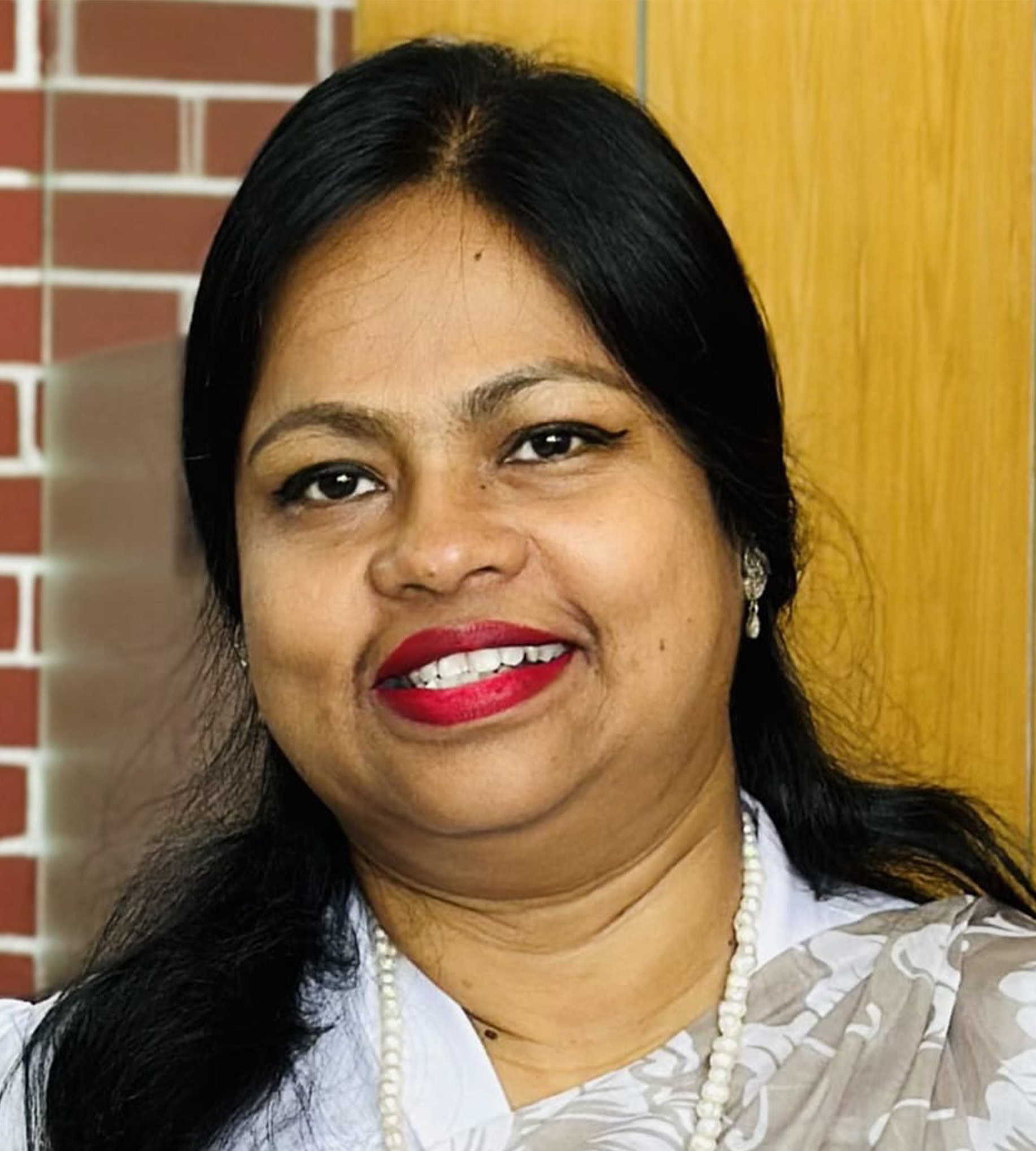
Liza Sharmin
Dean of the Faculty of Humanities & Social Sciences,
Daffodil International University, Bangladesh
View Bio >
Transformative Teaching-Learning Paradigm for the 21st Century: Engagement of Tertiary Learners through Collaboration
Abstract:
Keeping pace with the ever-evolving global education landscape, the vital concern today has become the enhancement of the quality of education. The tertiary level of education is a significant phase after primary and secondary levels, where merely traditional pedagogy seems to be insufficient to meet the learning needs of adult learners. The learners of this phase deserve a more planned, activity-based, and occasionally, autonomous learning environment. The current research highlights the implementation of a collaborative teaching pattern developed by integrating aspects from andragogy in a Suggestopedic environment making sure the activities common in the practice of Total Physical Response (TPR) to create more engaging, meaningful, and effective learning experiences. The practice emphasizes on experimental knowledge, self-directed learning, and problem-solving of the Post-Pandemic learners. Most significantly, the principles of andragogy align with the cognitive, psychomotor, and emotional development of the tertiary learners. This qualitative research was conducted in the form of action research with fifty (50) second-semester, first year students of Introduction to Poetry course at the Department of English at Daffodil International University (DIU), Bangladesh. At the end of the semester, four sets of data have been collected through ‘Padlet’ on a blended learning course platform which exhibited the impact of students’ engagement, active academic performance, experience of being resource by themselves, and overall learning satisfaction. The outcomes of the research documented how problem-based learning, collaborative planning, reflective practices, and flexible learning transformed higher education along with literature review and practical recommendations.
Keywords: Quality education, adult learner, Pedagogy, Andragogy, Suggestopedia, TPR
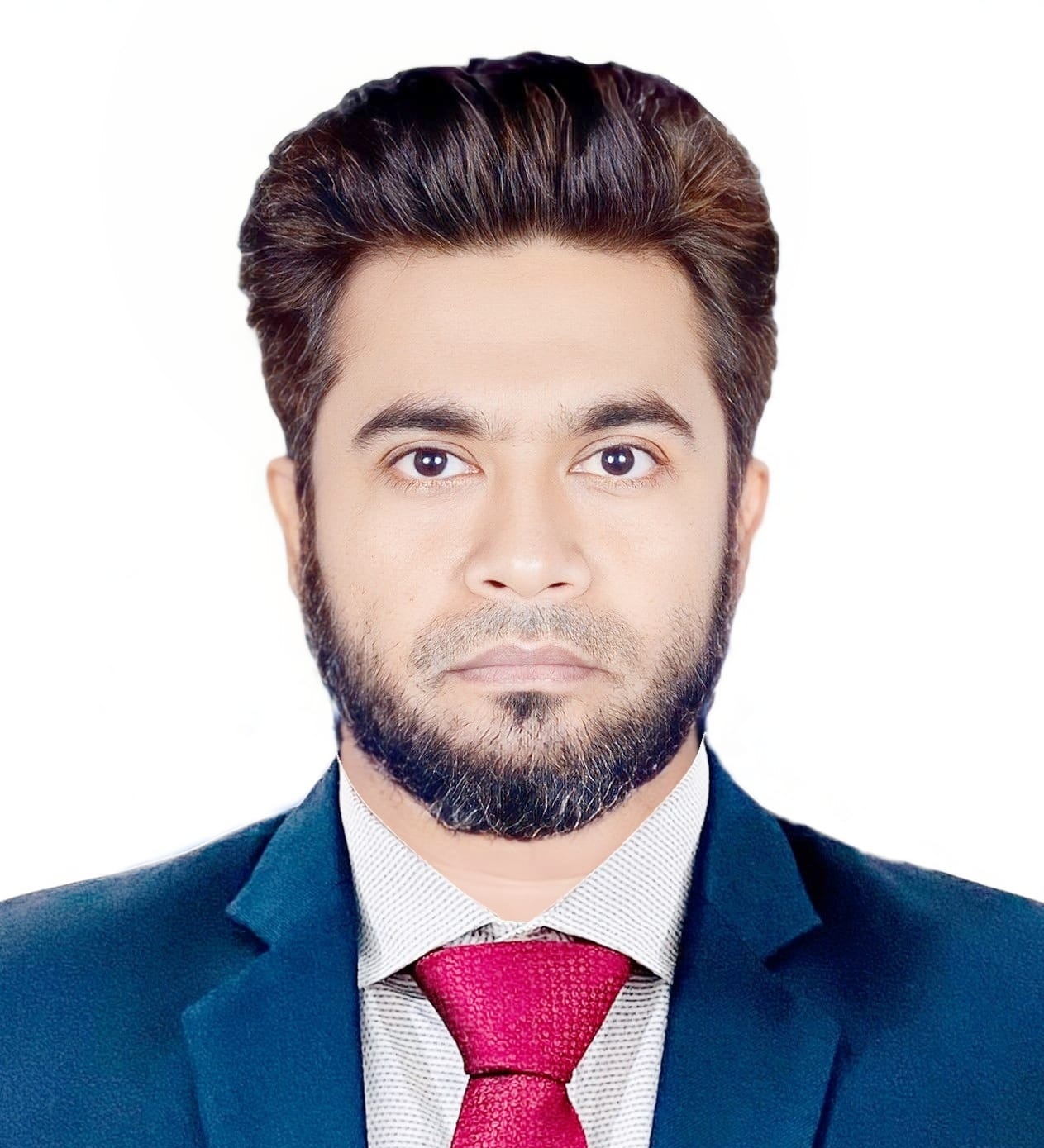
Mohammad Anisur Rahaman
Dean of the Faculty of Social Sciences
Bangabandhu Sheikh Mujibur Rahman Science and Technology University, Bangladesh
View Bio >
Mechanisms of Prenatal Relationships and Early Social Bonding
Abstract:
Prenatal parental relationships play a vital role in shaping early social bonding and emotional development. This review adopts a multidimensional approach—integrating psychological, biological, social, and cultural mechanisms—to explain how these relationships influence infants’ attachment and parents’ postnatal behaviors. The findings emphasise that both maternal and paternal engagement before birth are critical for lifelong socio-emotional health.
Keywords: prenatal bonding, maternal-fetal attachment, paternal engagement, early social development, multidimensional perspective.
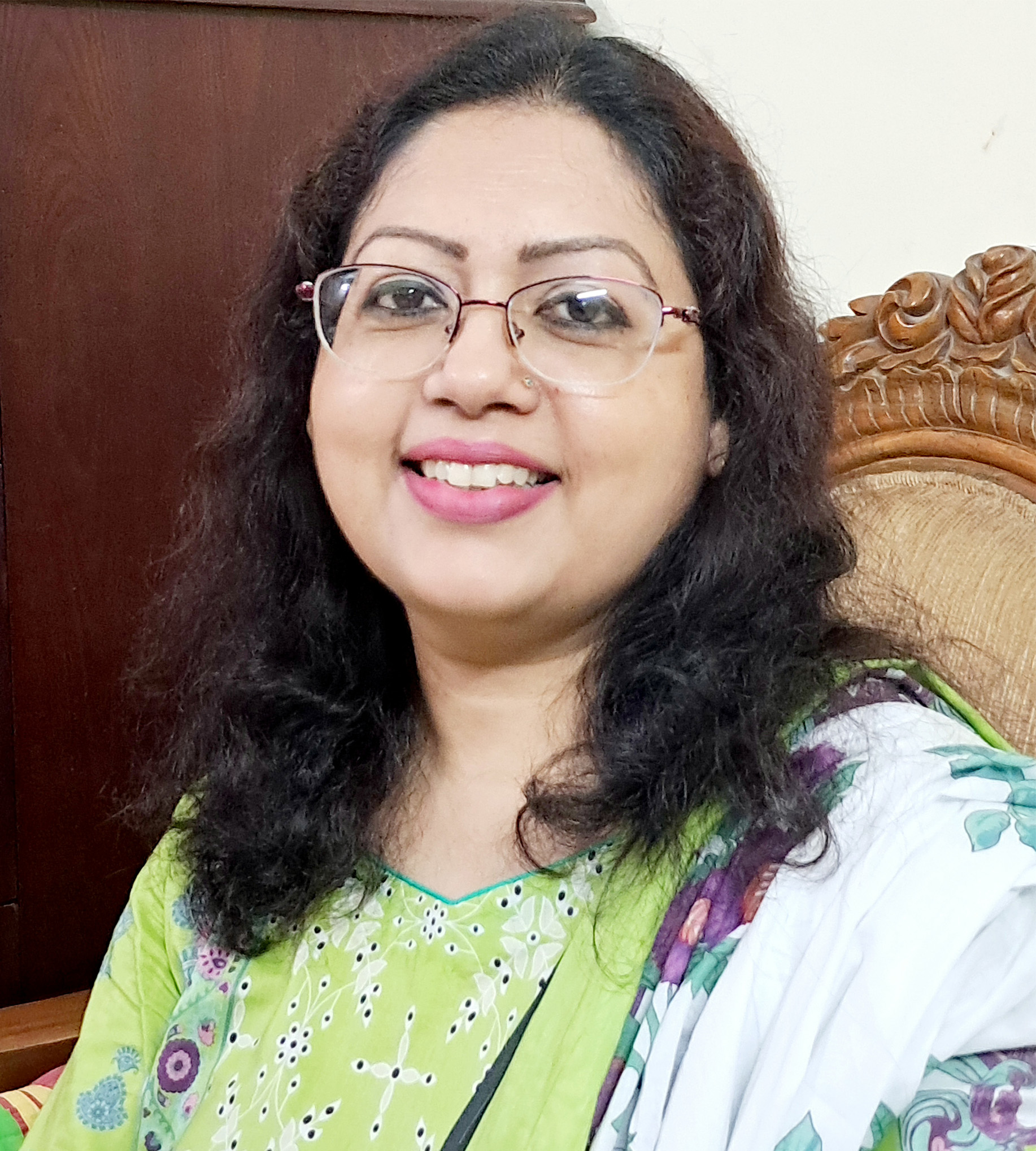
Sayma Arju
Professor and Chairman, Department of English
Stamford University Bangladesh
View Bio >
Gaps, Needs, and Expectations: An Inquiry into Students’ Perceptions on the Integration of Generative AI in Supporting Students with Learning Disabilities in Higher Education
Abstract:
This study explores how university students with learning disabilities in Bangladesh perceive the integration of generative artificial intelligence (AI) as a support mechanism in higher education. Conducted at a private university, the research involved 28 participants who had been formally diagnosed by physicians or psychologists prior to admission. A purposive sampling approach was adopted to ensure participants represented a range of learning disabilities, including dyslexia, ADHD, and mild autism. A mixed-method questionnaire comprising both quantitative and qualitative items was used to gather information on participants’ demographics, experience with AI, understanding and evaluation of AI, practical applications, perceptions of AI-supported examination processes, ethical considerations, and expectations for AI-assisted learning.
Findings reveal that students view generative AI as a potential personal tutor, academic coach, and technical assistant that can enhance accessibility, inclusivity, and adaptive learning experiences. Thematic analysis highlights six key areas of student expectations: personalized and adaptive learning, enhanced feedback and learning support, accessibility and inclusivity, academic skill development, technical and resource support, and student agency through AI literacy and training. During data collection, the researcher was present, and students freely asked questions and shared relevant experiences in a comfortable, pressure-free environment. While students express optimism about AI’s capacity to bridge gaps in equity and inclusivity, they also emphasize the need for institutional policies ensuring equal access, cultural localization, and ethical use. The study underscores the importance of collaboration between universities, policymakers, and developers to make AI a sustainable tool for inclusive higher education in Bangladesh.
Keywords: Generative AI, learning disabilities, inclusive education, higher education, Bangladesh, accessibility, student perceptions, AI literacy, adaptive learning, educational technology.

Muhammad Imran
Postdoc Fellow
European Scientific Institution (ESI)
Viewv Bio >
AI and Critical Thinking in Language Learning: Challenges and Opportunities
Abstract:
The present study investigates the complex relationship between the artificial intelligence (AI) tools and critical thinking skill development among language learners. This study uses a quantitative correlational method, and the data were collected from 107 language learners from higher education institutions through a structured questionnaire. To explore how AI tools support or hinder critical thinking skills, we applied critical thinking and constructive learning theories, along with descriptive statistics, data visualisation (using violin plots and heatmaps), and correlational analysis for data analysis. The findings highlighted the usage patterns of AI tools for language learning, the widespread adoption of AI tools among young language learners, and a strong positive correlation was observed between the perceived use of AI technology and self-reported engagement in critical thinking. At the same time, a significant negative correlation emerged between high AI dependency for academic work and the ability to analyse AI-generated content critically. These findings suggest that AI has the potential to foster personalised learning by providing feedback, scaffolding, and iterative learning. However, some critical concerns related to over-reliance, bias in AI-generated content, and ethical issues might hinder learners’ autonomous problem-solving, critical evaluation, and cognitive development.
Keywords: AI; Critical thinking; Language education; Personalized learning; Pedagogical transformation
Doctoral Candidates

Antonio Wong Lee Chun
The “Cantonization” of Gregorian Chant: Some Preliminary Concerns
Abstract:
Gregorian chant is the music native to the Roman liturgy. The “Cantonization” of Gregorian chant refers to the stylistic and linguistic adaptation of Gregorian-style melodies to the Cantonese tongue as a means to maintain continuity with the traditional soundscape of the Roman Rite’s liturgical chant.
The Second Vatican Council’s reform aimed to make the Catholic liturgy more comprehensible by introducing the vernacular as a language of celebration. The form of music remains one of the most contentious issues in the reformed liturgy since the vernacular has emerged in the Church’s liturgical life. In most places where the reformed liturgy is celebrated, the tradition of singing Latin Gregorian chant gave way to vernacular hymns and songs. The abandonment of traditional plainchant constitutes the general musical impression of modern Catholic liturgy.
In his dissertation, Antonio proposes the rehabilitation of the Proper chants of the Mass by creating Cantonese liturgical chants which resemble the style of the Gregorian chant. Substituting the Proper chants of the Mass with metrical hymns and songs, as Antonio holds, not only poses discontinuity from the traditional use of plainchant but also confuses the theological and spiritual integrity between the music and the rite.
Antonio argues that the traditional soundscape created by Gregorian chant remains a permanent marker of the liturgical tradition and identity of the Catholic faith. The treasure of traditional sacred chants, as hallowed by the Second Vatican Council, is to be preserved and promoted with great effort. The idea of a “Cantonization” of Gregorian chant, as proposed by Antonio, is a remedy to retrieve the liturgical sensation and theological integrity of liturgical chant in modern Roman liturgy.
Keywords: Liturgical chant, Cantonese, Gregorian chant, Roman liturgy, Second Vatican Council.
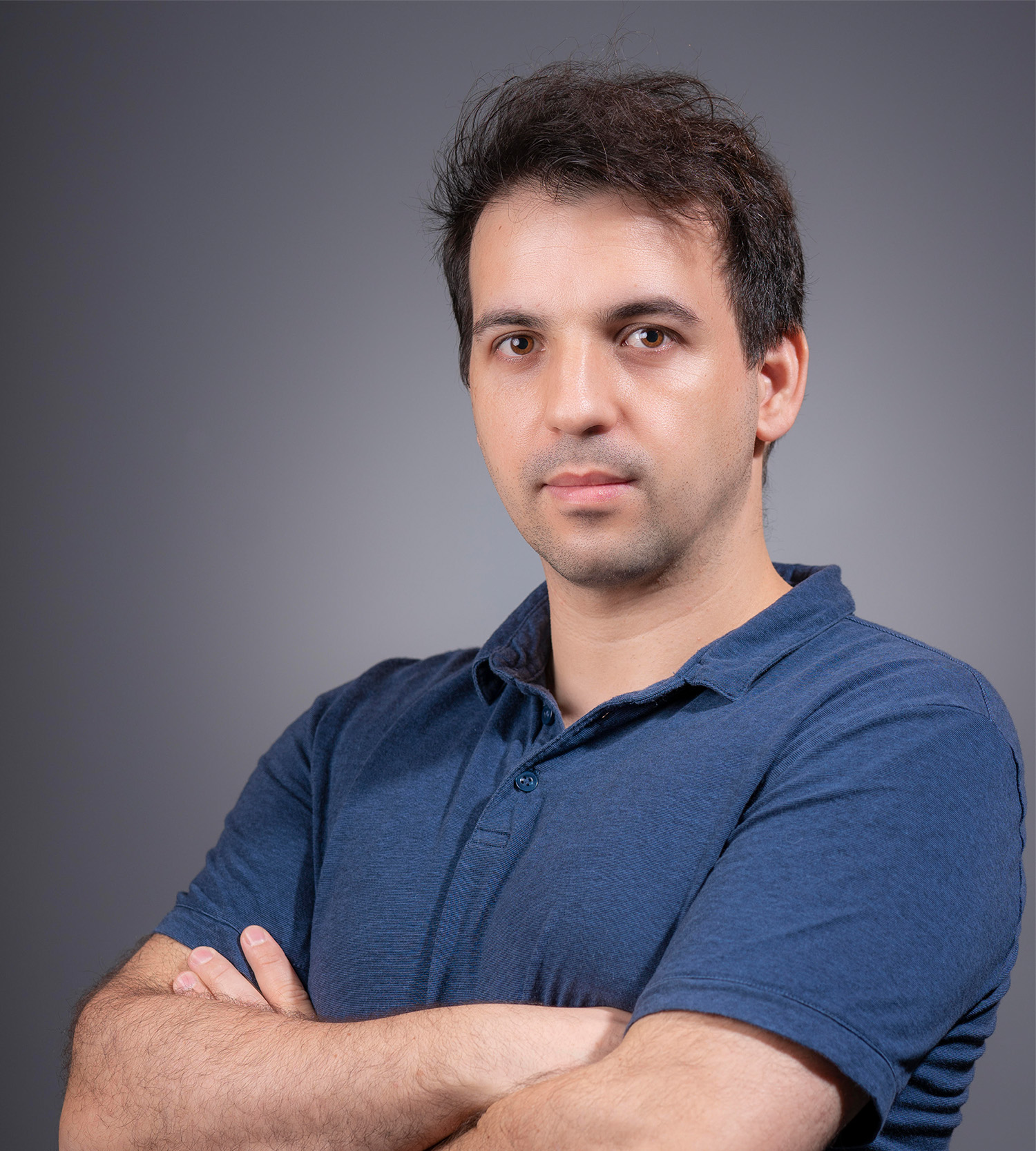
João Brochado
An Analysis of Cinematography Elements Contributing to a Cinematic Look of a Narrative Digital Film
Abstract:
This study explores the complex idea of the cinematic look in digital narrative films – an aesthetic that is often mentioned but rarely defined with precision. It addresses the inconsistencies in how the term is used across both professional and educational settings and investigates which cinematographic elements most influence perceptions of cinematic quality, why this aesthetic is valued, and how cultural background shapes its meaning. Adopting a mixed-methods approach, the research combines a quantitative experiment involving 127 participants from 21 countries with qualitative interviews with 15 filmmakers from different regions. Findings indicate that no single element ensures a cinematic look; instead, it emerges from the deliberate combination of multiple factors guided by narrative intention. The study proposes a pyramid model and decision matrix to classify these elements by their relative importance, providing theoretical clarity, empirical grounding, and practical direction for filmmakers and educators.
Keywords: Film Studies, Cinematic look; Cinematography; Film aesthetics; Digital filmmaking; Visual storytelling.

Glyn Alexander Duggan
The MPLA Steering Committee Conference, Sikango, Zambia, 27th September-3rd October, 1971
Abstract:
The MPLA Steering Committee Conference held in Sikango, Zambia, from September 27 to October 3, 1971, addressed critical military, political and educational challenges facing the MPLA during the Angolan liberation struggle. The conference revealed a dire military context, with the MPLA on the defensive against the Portuguese as well as against other liberation movements such as the FNLA and UNITA. The attendees included prominent MPLA leaders who reported on regional activities, emphasizing the need for improved education policies to cultivate a new generation of cadres and a new generation of highly focused students. Despite acknowledging the urgent need for educational infrastructure and resources, logistical difficulties impeded progress. The conference concluded with resolutions enhancing the politicization of curricula as well as a renewed and stronger emphasis on child-soldiering. Overall, the conference underscored a period of introspection for the MPLA, grappling with the realities of warfare, the problems of demoralized students and the necessity for internal reform.
Keywords: MPLA, Angola, Liberation War, Education Policy, Military Strategy, Child soldiers.
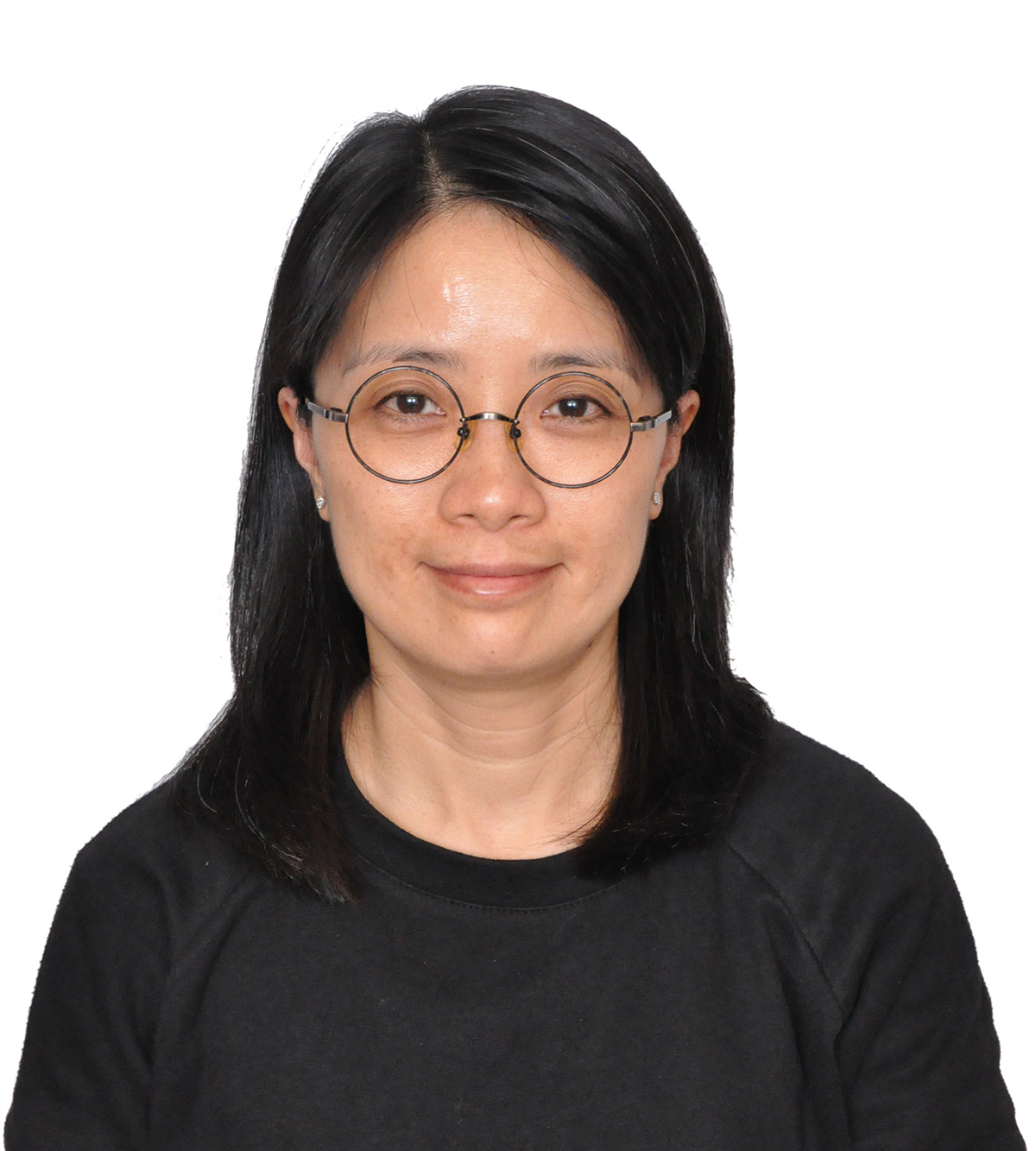
Lena Leung Sok Ieng
Macau’s Public Administration: Bureaucracy and New Public Management
Abstract:
Macau’s bureaucratic system is the product of a historical and cultural mixture. It is enriched and shaped by the colonial past, cultural influences, and evolving governance structures. It is highly influenced by the Portuguese colonial government. Since 1999, Macau has returned to China as a Special Administrative Region and has undergone a significant public administrative transformation from colonial to special public administration. The former public management system in Macau operated on a patronage basis, with many of the Portuguese bureaucratic governing styles. After the handover, the emerging new public management system in Macau places a stronger emphasis on collaboration and partnership, fostering close cooperation between the government, private sector, civil society, and other stakeholders to achieve common objectives. It aims to identify the emerging management system in Macau, which reflects the significance of both bureaucratic governance and the new public management in Macau’s public administration.
Keywords: Bureaucracy, New Public Management, Public Administration, handover Macau’s Public Administration.
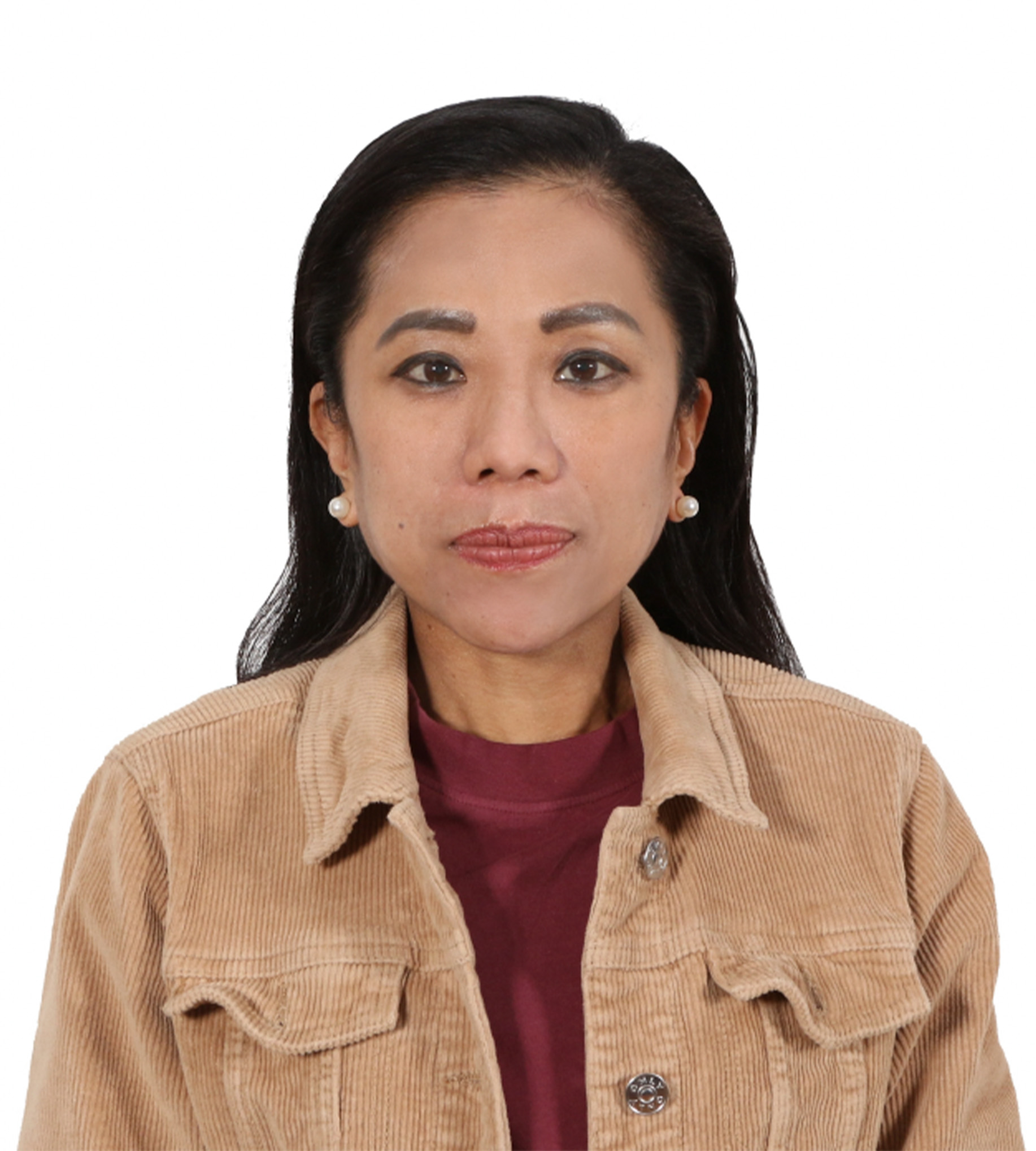
Lem Anne Agnas Limbo-Messinger
The Triple Bottom Line and the Sustainability of Social Enterprises in Macao
Abstract:
While social enterprises (SEs) have existed since the 1950s, academic research on them has accelerated over the past 20 years. The emergence of social enterprises in Macao and the study of them in particular, is a more recent phenomenon.
It is clear SEs have both social and business missions and require careful balance to be viable, and there is a clear gap in our knowledge of the business and sustainability models of Macao SEs and what they do to increase their chances of achieving sustainability—and possibly profitability, particularly through the lens of the Triple Bottom Line (TBL – social, environmental, economic)
This study addresses this gap by exploring all dimensions of the TBL within social enterprises to gain more comprehensive insight into how social enterprises in Macao maintain sustainability and, importantly, develop a conceptual model of sustainable development for Macao social enterprises to meet all TBL components and thus help achieve/maintain sustainability.
Keywords: Social Enterprise; Triple Bottom Line (Environmental Sustainability, Social Sustainability, Economic Sustainability); “The 3P’s” (Profit, People, Planet); Business Models; Value Creation; Social Innovation.

Emil – Ip Chi Hang
“Institutional Forces at Work: A model of Open Innovation in the Guangdong, Hong Kong, Macao Greater Bay Area”
Abstract:
This doctoral research investigates how institutional forces shape the inbound open innovation (OI) processes and absorptive capacities of SMEs within the unique polycentric environment of the Guangdong-Hong Kong-Macao Greater Bay Area (GBA). The central research question asks: How do institutional forces influence the open innovation processes and absorptive capacities of firms from the GBA? To unpack this, five sub-questions explore the impact of coercive (regulatory), normative (cultural), and mimetic (social) pressures, as well as the potential for institutional isomorphism across firm types and the role of innovation intermediaries. Based on in-depth qualitative interviews with SMEs in Guangdong province, Hong Kong, and Macao, this preliminary study reveals a striking tripartite model of OI. Guangdong SMEs operate within a self-sufficient, supplier-driven ecosystem, prioritizing engineering pragmatism and selective openness. Hong Kong SMEs act as institutional integrators, leveraging formal ecosystems like Cyberport and their global positioning to bridge Mainland capabilities with international markets, despite facing significant cross-border friction. Macao SMEs, operating in an environment of institutional voids, rely on informal networks and replication, yet some exhibit pioneering behavior by acting as regulatory entrepreneurs or using their small scale as a strategic testbed. These findings demonstrate that OI is not a uniform practice but is deeply contingent on the local institutional logic—be it Guangdong’s manufacturing density, Hong Kong’s common law connectivity, or Macao’s service-oriented conservatism. The research highlights that successful OI in the GBA requires navigating, rather than erasing, these differences. This presentation will outline these emergent themes, discuss their theoretical implications for Institutional Theory and Open Innovation, and present the next steps for developing a robust GBA-wide typology of innovation practices.

Faustino Tabilas
Strength To Thrive: Mental Health And The Road To Resilience Among University Students
Abstract:
Concerns have been raised regarding the growing demand for mental health support among students. Consequently, shifting from a treatment-oriented approach to a preventive one has become crucial. Resilience training, as a key protective factor, is attracting increasing attention for its role in helping students build resistance to adversity and sustain mental health.
This study aims to investigate the mental health status, resilience levels, and approaches to resilience-building among undergraduate students in Macao. The ultimate goals are to identify the components of a future resilience intervention and establish a model of resilient students in this context. While qualitative analysis serves as the primary research method to explore the depth of students’ experiences, perspectives, and resilience-building processes, quantitative methods will be employed specifically to identify subgroups of students with low and high resilience—ensuring targeted insights into diverse resilience profiles. The research will focus on the general population of undergraduate students in Macao.
The findings of this study are expected to expand the existing literature on resilience and contribute to the development of a contextualized resilience intervention program tailored to the needs of undergraduate students in Macao.
KEYWORDS: Resilience, Mental Health Support, Macao Undergraduate Students, Resilience Intervention
